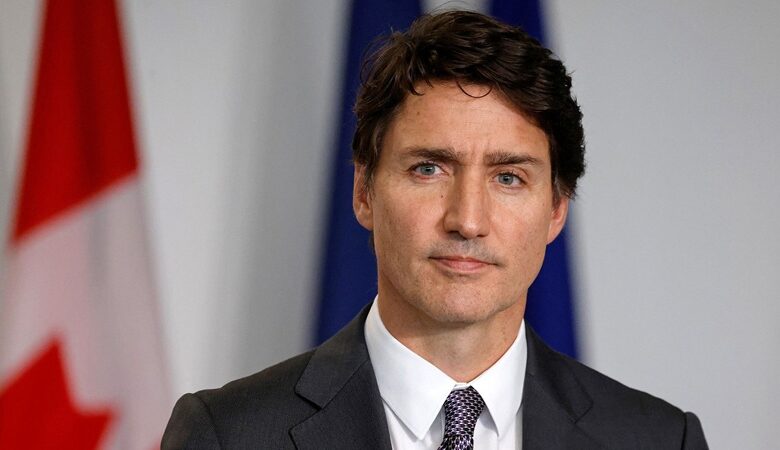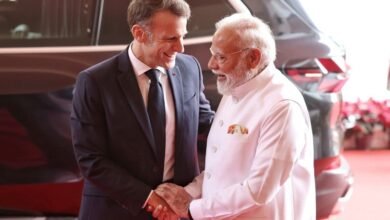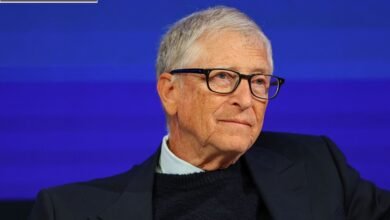Canadian Prime Minister Justin Trudeau has announced his resignation. What will happen now?
News Mania Desk / Piyal Chatterjee / 7th January 2025

Prime Minister Justin Trudeau announced his resignation on Monday, saying he intends to step down from the top job and as the leader of Canada’s ruling Liberal Party once a new party leader is chosen.
“I intend to resign as party leader, as prime minister, after the party selects its new leader,” the 53-year-old leader told reporters at a news conference in Ottawa on Monday.
Canada’s parliament will be suspended until March 24 while a new Liberal Party leader is chosen, he also said.
Trudeau added that he has “one regret” – failing to reform Canada’s election process, ahead of a general election expected this fall.
“If I have one regret, particularly as we approach this election — well, probably many regrets that I will think of,” the outgoing leader said. “But I do wish we’d been able to change the way we elect our governments in this country so that people could simply choose a second choice, or a third choice on the same ballot.”
Trudeau, who has been the Liberal Party leader for 11 years and prime minister for nine, was confronting an increasing series of challenges, including Donald Trump’s tariff threats, the departure of crucial allies, and troubling opinion poll results. His resignation might be interpreted as opting to leap before being forced out, prior to a general election scheduled for later this year, which he is largely anticipated to lose.
In 2015, Trudeau led the Liberals to victory, pledging “sunny ways” for Canada. He supported progressive causes such as fighting climate change and addressing past injustices towards Indigenous populations, yet the later years of his leadership have been characterized by increasing economic dissatisfaction. A widely circulated altercation with a steelworker, who lambasted Trudeau for neglecting the rising cost of living, highlighted the increasing dissatisfaction among Canadians.
“You’re not actually contributing anything for us, Justin,” the employee observed, emphasizing a feeling that echoed broadly. Last year, Trudeau’s government faced upheaval with the unexpected resignation of Deputy Prime Minister and Finance Minister Chrystia Freeland, mere hours before her scheduled annual fiscal update. In a scathing resignation letter, she denounced Trudeau’s “political gimmicks,” probably alluding to a two-month sales tax break and 250 Canadian dollar ($175) rebates for a majority of employees.
Freeland stated that Canada could “hardly manage” these policies, perceived as a pre-election giveaway to regain some voters, and occurring while the nation confronts the grave likelihood of substantial tariffs that may be imposed by the incoming Trump administration. US President-elect Donald Trump, expected to re-enter the White House on January 20, has announced he will enact an executive order initiating a 25% tariff on all goods arriving in the US from Canada.
The national executive of the Liberal Party, responsible for leadership matters, is set to convene this week, probably following the caucus. Dissolving parliament aims to allow the party time to select a new leader. Potential alternatives consist of the ex-governor of both the Bank of England and the Bank of Canada, Mark Carney, foreign minister Mélanie Joly, and the former deputy prime minister, Chrystia Freeland.
The expectation is that a fresh party leader might lift the Liberals from their slump, ahead of a general election scheduled for on or before October 20. Recent polls indicate that Trudeau’s Liberal Party is trailing the opposition Conservative Party, which is headed by the outspoken Pierre Poilievre. “This nation merits a genuine option in the upcoming election, and it has become evident to me that if I’m engaged in internal conflicts, I cannot be the strongest candidate in that election,” Trudeau remarked on Monday.
Trudeau won election three times, with his latest victory in 2021, during which he retained power but lost his majority in governance. Since that time, Poilievre’s Conservative Party has established a lead of over 20% over the Liberal Party in national polling averages. On Monday, Trudeau informed reporters that Poilievre’s conservative perspective “is not suitable for Canadians.”
“Stopping the fight against climate change doesn’t make sense. Backing off on the values and strength and diversity that Canada has always, always, worked to pull itself together on is not the right path for the country. Attacking journalists, the CBC institutions, that’s not what Canadians need in this moment. We need an ambitious, optimistic view of the future – and Pierre Poilievre is not offering that,” he said.
Reacting to Trudeau’s resignation Monday, President-elect Trump doubled down on the idea that Canada and the US should merge.
“Many people in Canada LOVE being the 51st State. The United States can no longer suffer the massive Trade Deficits and Subsidies that Canada needs to stay afloat. Justin Trudeau knew this, and resigned,” he said on Truth Social.
“If Canada merged with the U.S., there would be no Tariffs, taxes would go way down, and they would be TOTALLY SECURE from the threat of the Russian and Chinese Ships that are constantly surrounding them. Together, what a great Nation it would be!!!” he added.
Poilievre, who has already found currency with the MAGA base, bolstering his position as a potential candidate for this year’s general election amid an incoming Trump administration, also seized on Trudeau’s resignation to make an offer to Canadian voters.
“Canadians can take back control of their lives and their country,” Poilievre said in a video post on X. “Take back control of our border. Take back control of immigration. Take back control of spending, deficits and inflation.
“We’ll cap spending, axe taxes, reward work, build homes, uphold family, stop crime, secure borders, rearm our forces, restore our freedom and put Canada first,” he said.
And Freeland, a possible contender to replace Trudeau, who said in December that she and Trudeau had “found ourselves at odds about the best path forward for Canada,” thanked him for his service on Monday.
“I thank Justin Trudeau for his years of service to Canada and Canadians. I wish him and his family the very best,” she wrote on X.
Trudeau said at Monday’s press conference that he had hoped Freeland would continue as his deputy, “but she chose otherwise,” declining to provide more detail on their conversations.






